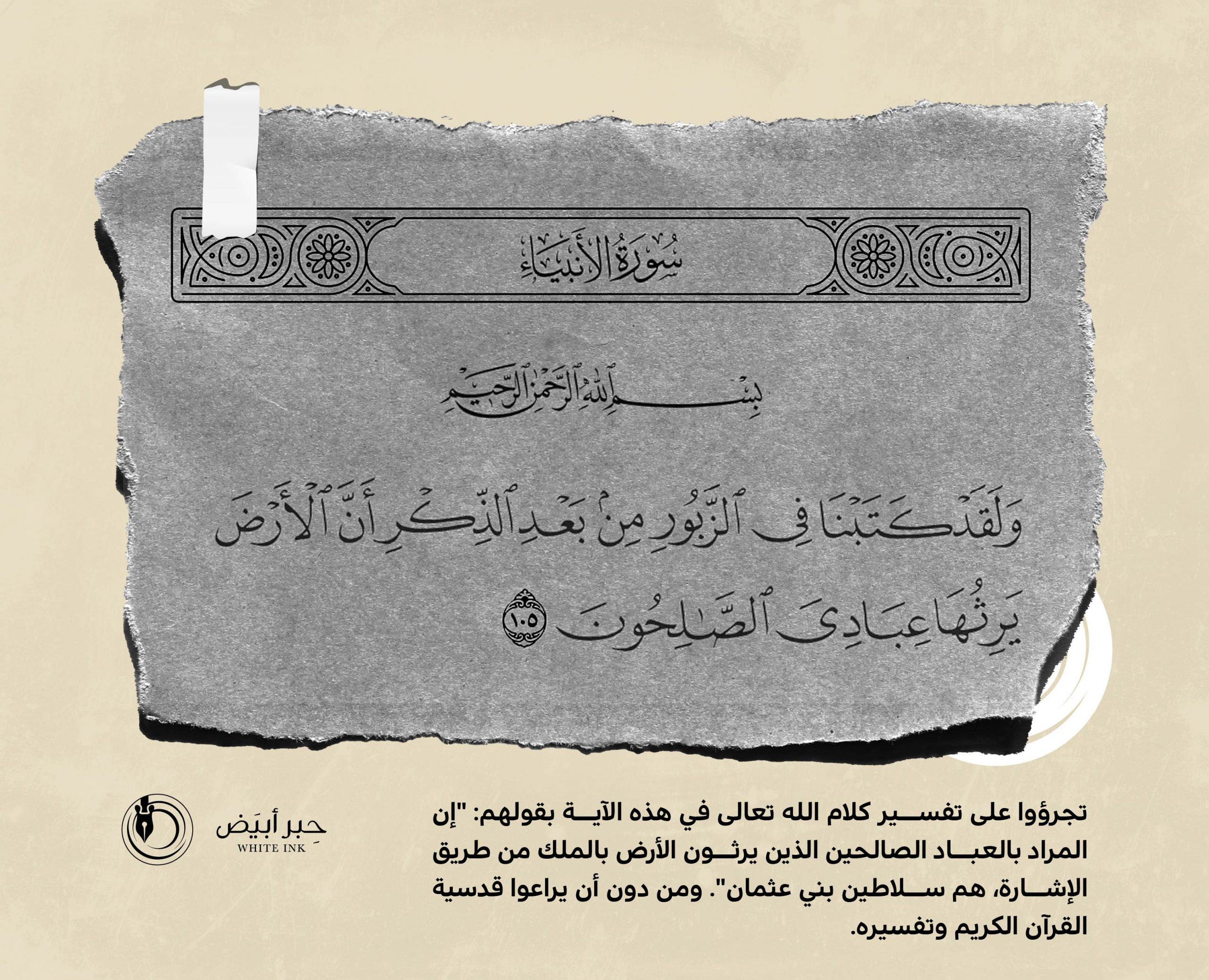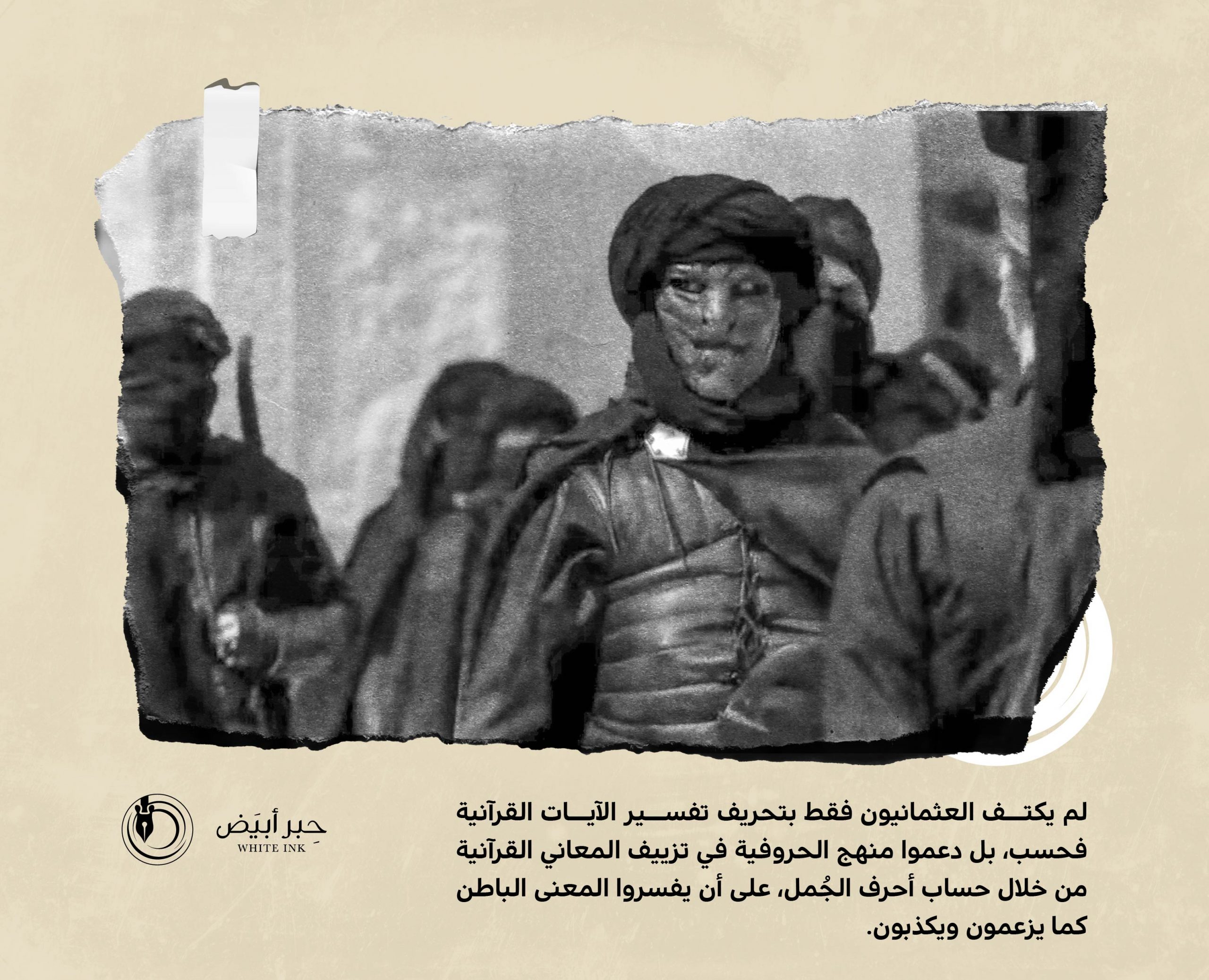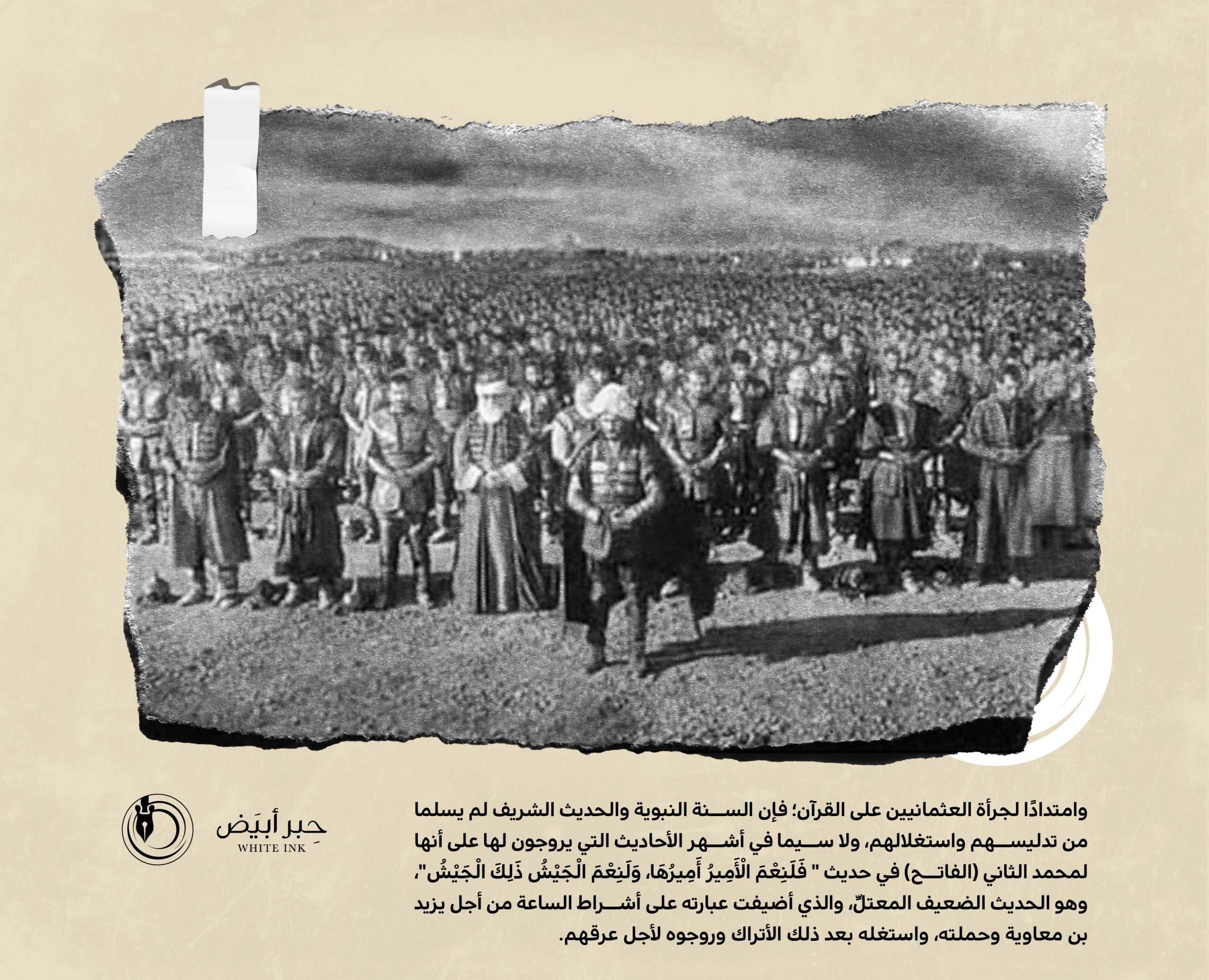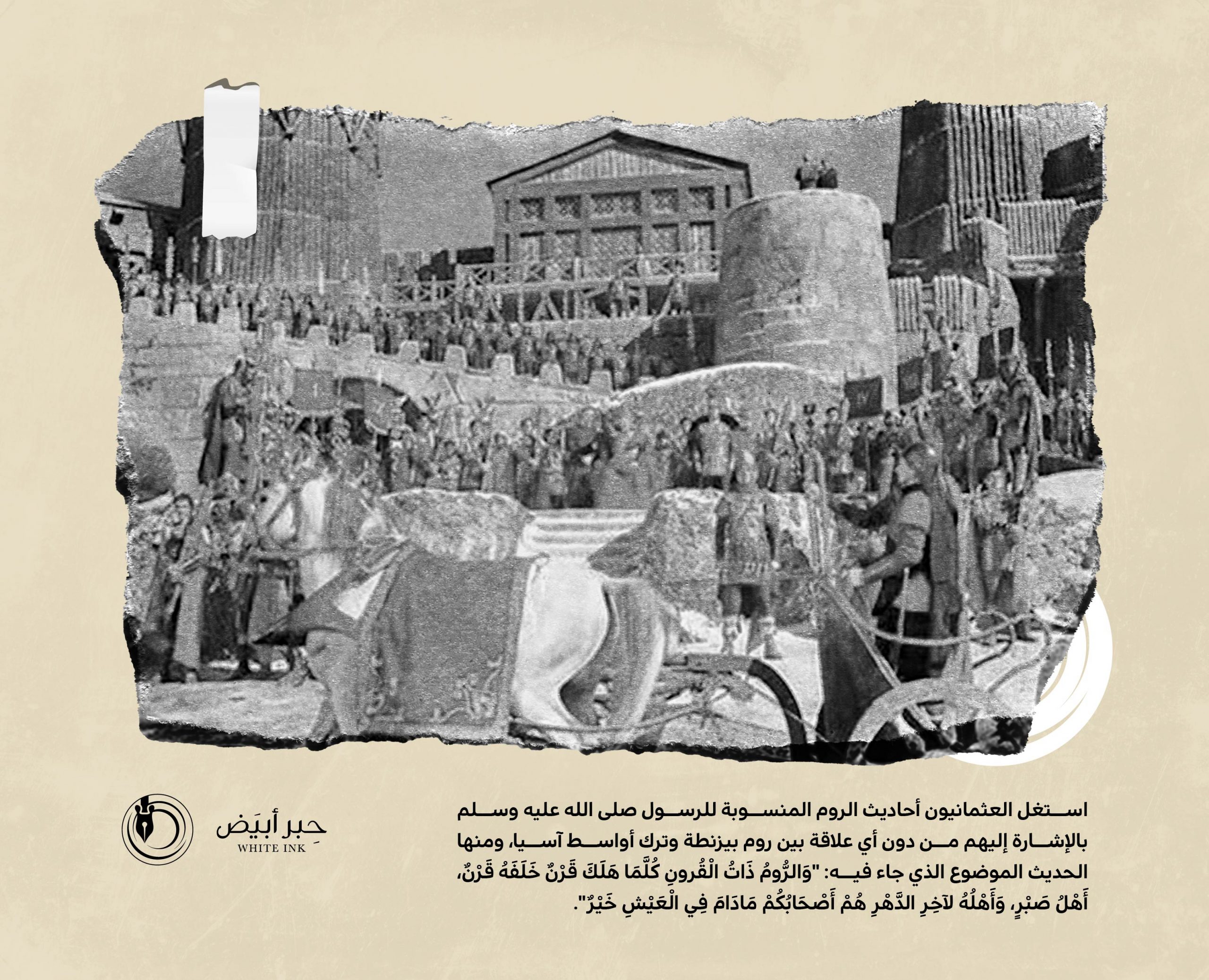
In plea for sympathy of Arabs and Muslims by the fabricated hadith of the Conqueror "Al-Fatih",
They abused the inauthentic and doubtful hadiths in favor of their state
Banu Ottoman quoted prophetic hadiths in conferring religious sanctity on the rise of their state and ruling the Arab countries in political and religious terms. They intended to seek the sympathy of Arabs and Muslims and gain their affection by removing their effects resulting from the crimes they committed against the Arabs and the occupation of their land.
The Ottoman Turks interpret the hadiths advocated by them, if they do not include doubtful chain of narration, according to their desires. For example, the hadith which promise a conquest at the end of time: “Verily you shall open (conquer) Constantinople. What a wonderful leader will he be, and what a wonderful army will that army be!”. This hadith is related to two points:
First:
the narration chain of hadith includes two defects: The first defect is that the first narrator of the hadith (Abdullah bin Bashr Al-Khathami) is classified by the scholars of discrediting and endorsement of narrators as an anonymous narrator. In addition, this hadith was narrated only by Al-Waleed bin Al-Mugheerah Al-Maafiry, and transmitted by Imam Ahmed in his “Musnad” and Al-Hakem in his Musnad; but it was declared as doubtful by Al-Albany and Al-Arnaout. Therefore, it is indicated that this addition is doubtful due to the anonymous narrator. The Second defect is that: the hadith was narrated by Reed bin Al-Habab, whose name, father’s name and identity are in lack of the scholars’ consensus. The interest in Constantinople and its conquest and the preparation of Muawiyah bin Abi Sufyan during his caliphate to conquer it may due to the interest of Yazid bin Muawiyah, who was a prince of that army, in the conquest of Constantinople.
The missionary hadith of the conquest of Constantinople was declared as doubtful by the narrator Al-Ghnawy.

Second:
Presumably, if the hadith is authenticated, the Emir intended in this hadith is not Muhammad Al-Fatih nor his Turkmen army when he conquered Constantinople in 1453, for several reasons:
1. The hadith was mentioned in contexts about the signs of the Resurrection and its proximity, and there are similar hadiths supports this context. It is authenticated in Sahih Muslim that Constantinople will be conquered at the end of time, the era of Al-Mahdi. Abu Hurairah narrated that the Messenger of Allah, peace and blessings be upon him, said: “Abu Huraira reported Allah’s Messenger, peace be upon him, as saying: The Last Hour would not come until the Romans would land at al-A’maq or in Dabiq. An army consisting of the best (soldiers) of the people of the earth at that time will come from Medina (to counteract them). When they will arrange themselves in ranks, the Romans would say: Do not stand between us and those (Muslims) who took prisoners from amongst us. Let us fight with them; and the Muslims would say: Nay, by Allah, we would never get aside from you and from our brethren that you may fight them. They will then fight and a third (part) of the army would run away, whom Allah will never forgive. A third (part of the army). which would be constituted of excellent martyrs in Allah’s eye, would be killed ani the third who would never be put to trial would win and they would be conquerors of Constantinople. And as they would be busy in distributing the spoils of war (amongst themselves) after hanging their swords by the olive trees, the Satan would cry: The Dajjal has taken your place among your family. They would then come out, but it would be of no avail. And when they would come to Syria, he would come out while they would be still preparing themselves for battle drawing up the ranks. Certainly, the time of prayer shall come and then Jesus (peace be upon him) son of Mary would descend and would lead them in prayer. When the enemy of Allah would see him, it would (disappear) just as the salt dissolves itself in water and if he (Jesus) were not to confront them at all, even then it would dissolve completely, but Allah would kill them by his hand and he would show them their blood on his lance (the lance of Jesus Christ)”.
Scholars and historians have not established a correlation between Muhammad Al-Fatih to the hadith of the conquest. Moreover, the narrators agreed that the conquest is meant by that conquest at the end of time.



1. Hammoud Al-Tuwaijry, Ithaf Al Jama’a bma gaa fi El-ften wa Al-malahem wa Ashart Alsa’a, 2nd Edition (Riyadh: Dar Al-Sumaiy, 1414 AH).
2. Muhammad Al-Nisaboury, Al-Mustadrak Ala Al-Sahihin (Mustadrak Al-Hakim), edited by: Mustafa Abdel-Qader Atta, (Beirut: Dar Al-Kotob Al-Ilmiyah, 1990).
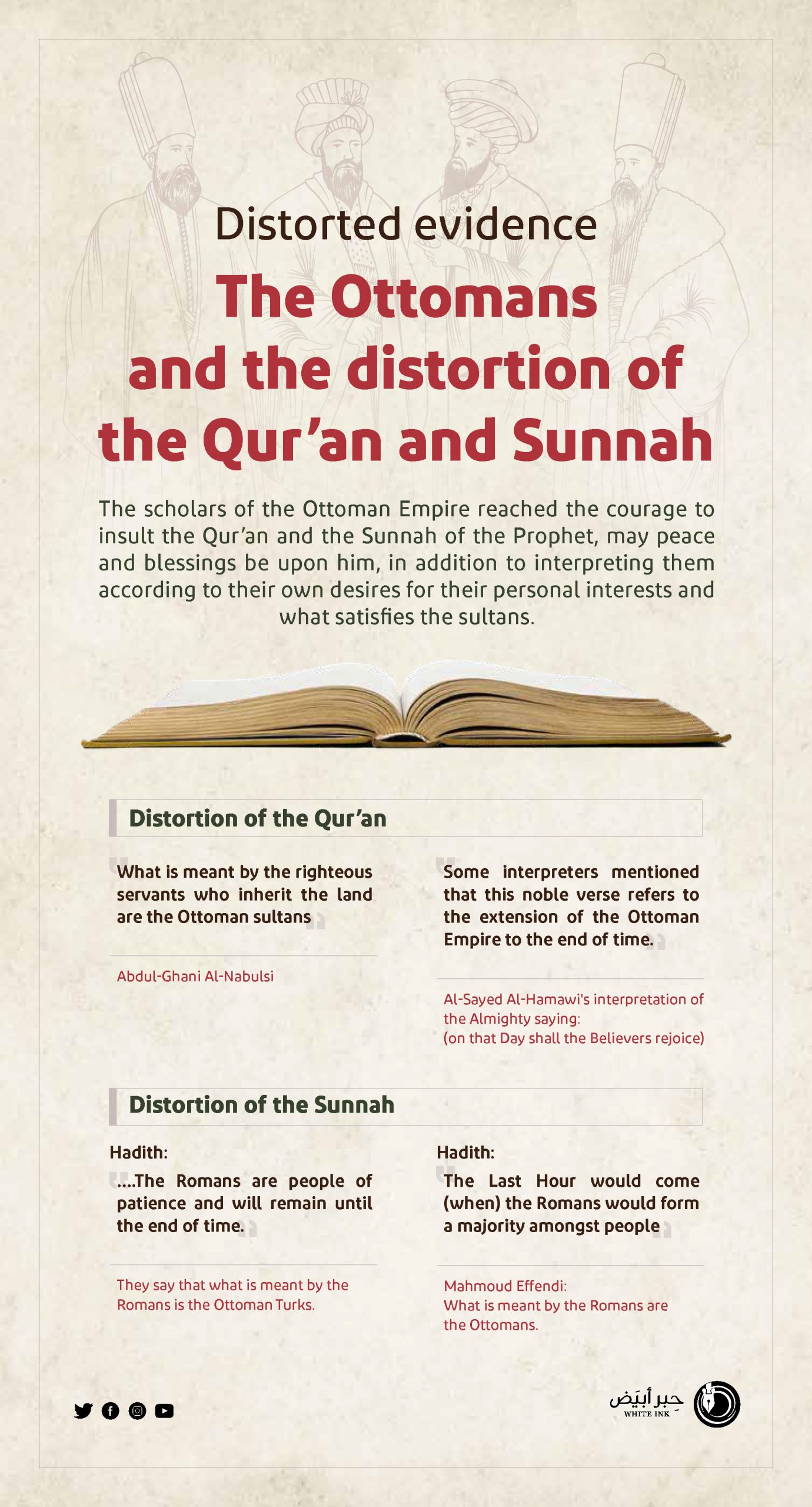

While the scholars unanimously agreed on their weakness
There were many fabrications of the Ottomans on Prophetic Sayings
Promoting weak hadiths and interpreting them according to their whims.

The two states (Persia and the Romans) – according to the context of this weak hadith – in the Prophet’s era will be destroyed at the hands of the Muslims, so Persia will be defeated and will disappear after one or two battles. As for the Romans, the conflict with them will be prolonged and there will be centuries of conflict, and that the war between the Arabs and the West will not stop, and their end will be at the end of time at the hands of Muslims in a great epic. That final epic is the one after which there is no resurrection of the Romans, and it is not intended in the hadith that the Prophet preached that the state of the Ottomans will remain until the end of time, and that the Arabs must submit to their rule and their authority.
There is another hadith reported by Mustaurid Qurashi, may Allah be pleased with him, where he said: I heard the Prophet Muhammad say: “The Last Hour would come (when) the Romans would form a majority amongst people”. What is meant by the Roman in the hadith according to – Mahmoud Effendi – are the Ottomans, and that their state will remain as the hadith preached that, and that this is inevitably a reality. This is a false inference, because what is meant by the Roman in the hadith is the religious affiliation.
They interpreted the hadiths of "the Romans" as being the Ottoman Turks.



1. Muhammad Nasir Al-Din Al-Albani, the weak series (Riyadh: Al-Maarif Library, dt).
2. Mahmoud Effendi Al-Hamzawi, Proof of the survival of the Ottoman Sultans until the end of time (Beirut: The Arts Association, 1308 AH).

With corruption, distortion and esotericism,
The Ottomans interpreted the Qur’an in a way that serves their interests
Some historians claim that the Ottoman sultans were characterized by purity of religion, strong methodology, and integrity of belief, in an attempt to polish their glory and show them as if they were religious leaders. However, the truth is that these rulers were not averse to bribing the Sultanate’s scholars who were obeying them. It is no wonder that you see a claimant of knowledge who dares to interpret a verse in a wrong way, making the oppressive ruler a religious symbol, and describing him with all the attributes of piety and justice. They have reached the point that they insulted the Holy Qur’an, the first legislative source, and interpreted it however they want, without regard to its sanctity and the prohibition of its interpretation contrary to the right approach.
They falsely said that the saying of Allah: “Righteous servants” refers to the Ottoman Sultans.

The most prominent errors are what the Mufti of Damascus, Mahmoud Effendi Hamza, referred to in his letter (Proof of the survival of the Ottoman Sultans until the end of time). He pointed out that Abd al-Ghani al-Nabulsi prepared a letter to the Ottoman Sultans, which he called (al-Talaa al-Bahiya). In it, he explained the words of Allah Almighty: (And verily we have written in the Scripture, after the Reminder: My righteous slaves will inherit the earth) {Al-Anbiya:105}. He explained the words by saying: “What is meant by the righteous servants who will inherit the earth are the Ottoman Sultans”.
In another similar situation, the forgery of the Ottomans and their scholars is represented in the interpretation of Al-Sayed Al-Hamawi of Allah’s saying: (A. L. M. The Roman Empire has been defeated- In a land close by; but they, (even) after (this) defeat of theirs, will soon be victorious- Within a few years. With Allah is the Decision, in the past and in the Future: {on that Day shall the Believers rejoice.) {Ar-Rūm:3-4}. He explained this in his book called (Al-Durr Al-Mazhum fi Fadl Al-Rum). He explains the saying of Allah (on that Day shall the Believers rejoice): That is, victory for the Romans, the companions of Caesar, the king of the Levant, over the Persians, the companions of Chosroes, who are the Magi. He explains Allah’s saying: (and He is exalted in might, most merciful): That is, in his victory for his loved ones and his revenge on his enemies. This has been mentioned by some of the interpreters that in this noble verse a reference to the extension of the Ottoman Empire to the end of time.
They interpreted the " the Believers rejoice" as an extension of the Ottoman Empire to the end of time.

This was a falsification of the meanings of the Qur’anic verses, in contrast to their interpretation proven in the books of trusted persons from among the scholars of the Islamic nation. It reveals the extent of corruption of the Ottoman Empire. This is because the interpretation of the Qur’an whimsically and contrary to what is known, is nothing but a service to a political agenda, promotion of Turkish rule, control and power, and justification of their injustice, so that injustice is legitimized by what is falsely interpreted from verses of the Qur’an other than their true meaning.


1. Fouad Hamzah, Describing Kemalism Turkey “wasf turkia akmaliah” (Beirut: Dar Al-Jadid, 2013).
2. Mahmoud Effendi Al-Hamzawi, Proof of the survival of the Ottoman Sultans until the end of time (Beirut: The Arts Association, 1308 AH).


